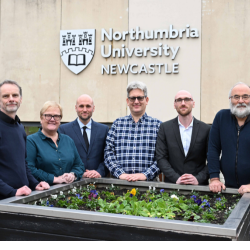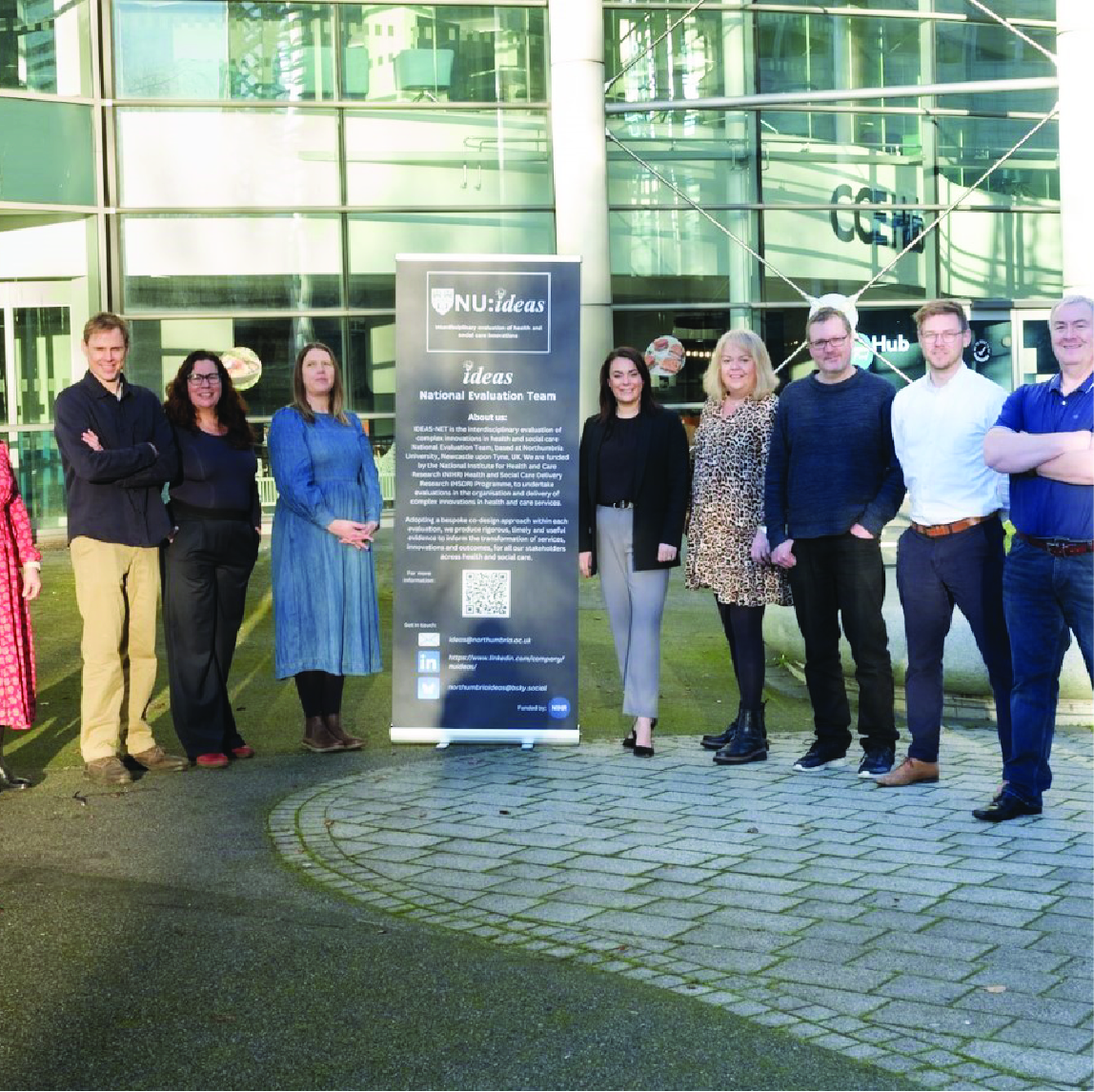-
Study
-
Quick Links
- Course Search
- Unlock Your Potential
- Still time to Apply
- Higher and Degree Apprenticeships
- Continuing Professional Development
- Still time to apply
-
Undergraduate
- Course Search
- Application Guides
- UCAS Exhibitions
- Foundation Years
- Fees and Funding
- School & College Outreach
- Information for Parents
-
Postgraduate
- Course Search
- Application Guide
- Postgraduate Research Degrees
- Flexible Learning
- Fees and Funding
- Change Direction
- Register your Interest
-
Student Life
- Students' Union
- The Hub - Student Blog
- Accommodation
- Northumbria Sport
- Support for Students
-
Experience Northumbria
- Open Days & Events
- Virtual Tours
- Campus Tours
- Life in Newcastle
-
-
International
International
Northumbria’s global footprint touches every continent across the world, through our global partnerships across 17 institutions in 10 countries, to our 277,000 strong alumni community and 150 recruitment partners – we prepare our students for the challenges of tomorrow. Discover more about how to join Northumbria’s global family or our partnerships.
View our Global Footprint-
Quick Links
- Course Search
- Undergraduate Study
- Postgraduate Study
- Information for Parents
- London Campus
- Northumbria Pathway
- Sign up for Information
-
International Students
- Information for Students
- International Events
- Application Guide
- Entry Requirements and Education Country Agents
- Global Offices
- English Requirements
- English Language Centre
- International student support
-
International Fees and Funding
- International Undergraduate Fees
- International Undergraduate Funding
- International Masters Fees
- International Masters Funding
- International Postgraduate Research Fees
- International Postgraduate Research Funding
-
International Partners
- Agent and Representative Network
- Global Partnerships
- Global Community
-
International Mobility
- Information for Northumbria Students
- Information for Incoming Exchange Students
-
-
Business
Business
The world is changing faster than ever before. The future is there to be won by organisations who find ways to turn today's possibilities into tomorrows competitive edge. In a connected world, collaboration can be the key to success.
More on our Business Services -
Research
Research
Northumbria is a research-rich, business-focused, professional university with a global reputation for academic quality. We conduct ground-breaking research that is responsive to the science & technology, health & well being, economic and social and arts & cultural needs for the communities
Discover more about our Research -
About Us
-
About Northumbria
- Our Strategy
- Our Staff
- Place and Partnerships
- Leadership & Governance
- Academic Departments
- University Services
- History of Northumbria
- Contact us
- Online Shop
-
-
Alumni
Alumni
Northumbria University is renowned for the calibre of its business-ready graduates. Our alumni network has over 246,000 graduates based in 178 countries worldwide in a range of sectors, our alumni are making a real impact on the world.
Our Alumni - Work For Us
What will I learn on this module?
You will learn how to apply your theoretical knowledge and skills to solving new scientific problems in the fields of animal, plant and microbial biology. Examples from the recent research activity of the tutors teaching on this module will be used to teach you the stages of the scientific method, which starts with having an idea and seeking the answer to a scientific question. You will be guided through this process in relation to two tasks: a structured problem-based approach to learning about the response of plants to herbicides, followed by a more open task of a small-scale project to investigate animal behaviour in an enriched captive environment. Your learning journey for each task will start with researching the relevant scientific literature and formulating hypotheses, followed by planning experiments, selecting the most appropriate methods of data collection (laboratory and field-based or via zoo web-cams, respectively), and putting your experimental design into practice and collecting data. You will then be guided through processing, analysing (including hypothesis-testing statistics), discussing and presenting the data collected in the most appropriate scientific format.
How will I learn on this module?
You will learn through lectures, practical laboratory sessions, workshops and field trips. The lectures will cover the theoretical knowledge and the concepts required for the problem-based learning and the animal behaviour project tasks. You will learn through actively engaging with the scientific research method during workshops, laboratory sessions, field trip and directed and independent learning. You will also have workshops in which you will practise data processing, descriptive and hypothesis testing statistics and results interpretation exercises, and receive formative feedback. You will also be expected to carry out directed and independent research of primary scientific literature, within the context of the problem based/ enquiry-based learning tasks included in this module.
How will I be supported academically on this module?
The module will have a module tutor and a teaching team of academic and technical staff. The module tutor will provide you with a module guide that will contain all the relevant information about the content and schedule of the sessions for this module, assessments, deadlines, sources of information and specific details of what you are expected to learn from the module. Lecture presentations and other relevant documents will be made available via the electronic Learning Platform (Blackboard). You will be encouraged to contact the academic staff teaching on the module with any queries you may have during your learning journey.
What will I be expected to read on this module?
All modules at Northumbria include a range of reading materials that students are expected to engage with. Online reading lists (provided after enrolment) give you access to your reading material for your modules. The Library works in partnership with your module tutors to ensure you have access to the material that you need.
What will I be expected to achieve?
Knowledge & Understanding:
1. Demonstrate an understanding of the stages of the scientific research method, including ethical considerations, and be able to use recent research publications to write a research project proposal.
2. Apply the theory of the scientific research method to design, plan and put into practice the experimental work and/or data collection required to test a scientific hypothesis.
Intellectual / Professional skills & abilities:
3. Carry out experimental work in the laboratory and in the field in a safe, ethical and responsible manner, according to the recommendations included in COSHH regulations and/ or other Hazard and Risk Assessment documents
4. Process data, carry out the appropriate statistical analysis, analyse and present data in the format of a poster and a scientific report.
Personal Values Attributes (Global / Cultural awareness, Ethics, Curiosity) (PVA):
5. Demonstrate awareness of the role of scientific research in solving real life problems affecting wildlife, agricultural crops and the welfare of animals in captivity.
How will I be assessed?
You will be assessed by coursework. There are two assignments in this module:
•Assignment based on the response of plants to herbicides problem-based learning activity – 50% of module mark.This will include answers to a series ofSAQs about the activity and a poster presentation and peer evaluation activity.1500-2000 words (KU M1, M2; IPSA M1,M2; PVA M1) – submission week 6 sem 2.
•Animal behaviour project report – 50% of module mark. This will be in the format ofa short research communication, based on the instructions for authors of the Journal of Zoo and Aquarium Research 2000 words (KU M1, M2; IPSA M1, M2; PVAM1) – submission exam week 2 sem 2.
Informal feedback will be given during workshops, practicals and in-session activities. A workshop on poster preparation will provide you with examples of good and not so good posters and guidelines for preparing your own poster. Proposals for the animal behaviour project will be submitted for formative assessment and will receive written feedback.
Your marked work with written feedback will be returned to you via Blackboard.
Pre-requisite(s)
AP0412 Animal and Plant Biology SEM2
Co-requisite(s)
AP0515 Environmental Biology SEM2
Module abstract
‘Biology in Action’ will guide you step-by-step through the scientific research process and you will carry out two smaller scale-research projects: a more structured task to determine the minimum dose of herbicide required to completely stop photosynthesis in a plant, and a more open task to investigate factors that influence animal behaviour in captivity at a zoo or animal park. You will have the opportunity to express your curiosity and creativity and produce a scientific communication output that you can present and discuss during an interview for future employment. You will develop valuable scientific research skills and transferrable skills that you will be able to apply to a variety of problem-solving tasks in a professional environment during future employment.
Course info
UCAS Code C100
Credits 20
Level of Study Undergraduate
Mode of Study 3 years Full Time or 4 years with a placement (sandwich)/study abroad
Department Applied Sciences
Location City Campus, Northumbria University
City Newcastle
Start September 2025 or September 2026
All information is accurate at the time of sharing.
Full time Courses are primarily delivered via on-campus face to face learning but could include elements of online learning. Most courses run as planned and as promoted on our website and via our marketing materials, but if there are any substantial changes (as determined by the Competition and Markets Authority) to a course or there is the potential that course may be withdrawn, we will notify all affected applicants as soon as possible with advice and guidance regarding their options. It is also important to be aware that optional modules listed on course pages may be subject to change depending on uptake numbers each year.
Contact time is subject to increase or decrease in line with possible restrictions imposed by the government or the University in the interest of maintaining the health and safety and wellbeing of students, staff, and visitors if this is deemed necessary in future.
Useful Links
Find out about our distinctive approach at
www.northumbria.ac.uk/exp
Admissions Terms and Conditions
northumbria.ac.uk/terms
Fees and Funding
northumbria.ac.uk/fees
Admissions Policy
northumbria.ac.uk/adpolicy
Admissions Complaints Policy
northumbria.ac.uk/complaints









